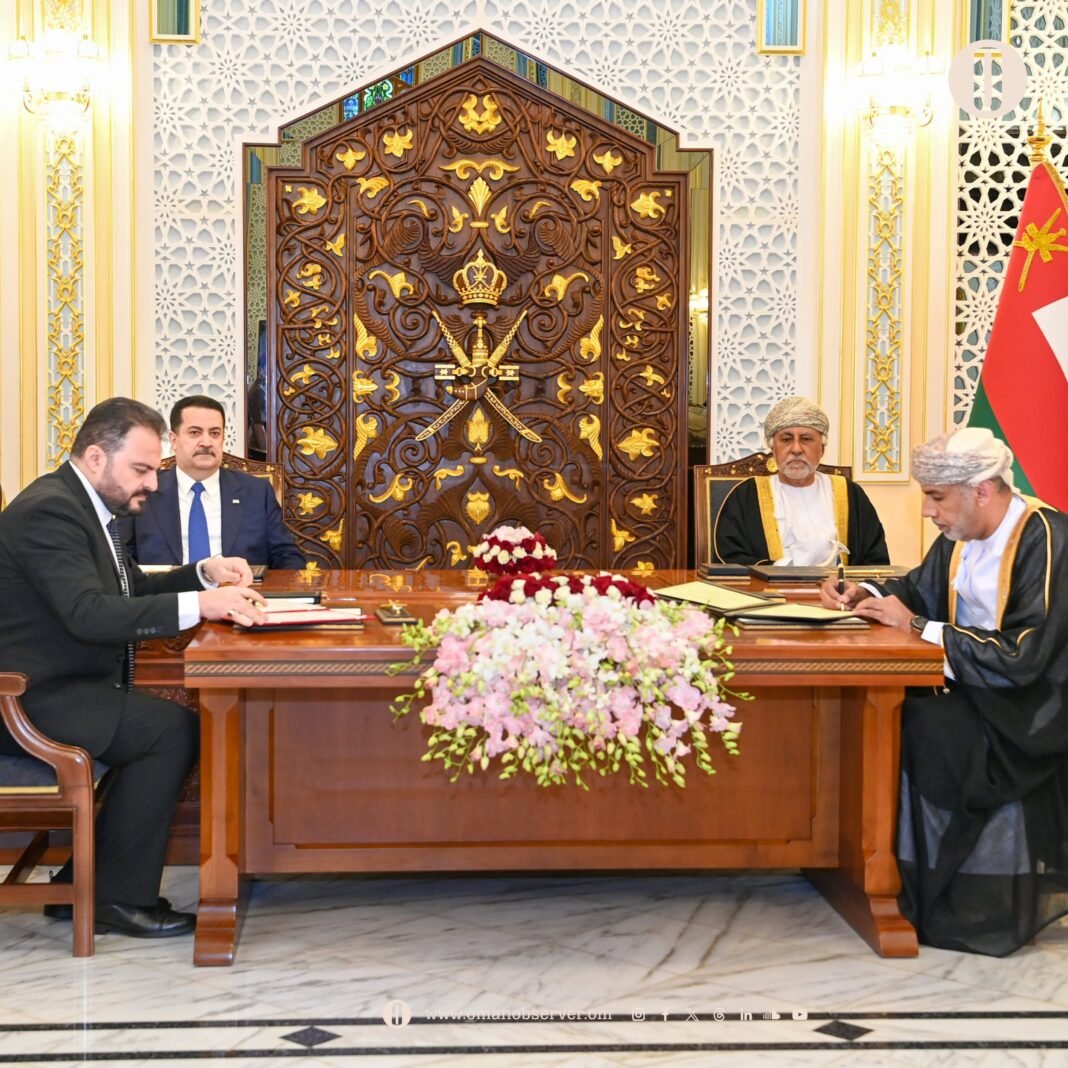Oman–Iraq partnership advanced significantly as the two countries signed two agreements and 24 memoranda of understanding. The ceremony took place in Salalah, attended by Prime Minister Mohammed Shiaa Al-Sudani and Deputy Prime Minister for Defense Affairs Sayyid Shihab bin Tariq Al Said. Therefore, the event marked a new chapter in bilateral relations.
The agreements covered important areas that strengthen economic and diplomatic ties. One focused on avoiding double taxation and preventing tax evasion on income and capital. Another introduced mutual visa exemptions for holders of diplomatic, special, and service passports. Moreover, these agreements created a foundation for smoother economic activity and closer official cooperation.
The 24 MoUs spanned a wide range of sectors, highlighting the depth of collaboration between Oman and Iraq. They included energy, industry, tourism, communications, youth, sports, higher education, and scientific research. In addition, they addressed housing, urban planning, broadcasting, transportation, logistics, stock exchange, capital markets, and banking supervision. Consequently, both nations expect stronger financial stability and broader development opportunities.
Furthermore, the MoUs extended to defense, with localization of defense industries and oil storage initiatives included. These areas show a shared commitment to expanding beyond traditional sectors. Therefore, both governments view the bilateral effort as a way to secure long-term national interests.
Economic integration stood at the center of the discussions. By signing these agreements, both nations opened new opportunities for trade and joint projects. In addition, the focus on capital markets and banking supervision will create more transparent financial systems. Consequently, this integration can attract investors and stimulate private sector growth.
Cultural and social sectors also received strong attention. Youth and sports programs aim to foster stronger people-to-people connections. Moreover, partnerships in education and research will encourage knowledge exchange and academic collaboration. As a result, Oman–Iraq alliance extends beyond economics into cultural and social development.
The scope of the agreements reflects clear determination from both countries. Oman aims to strengthen its regional partnerships while diversifying its economy. Similarly, Iraq continues to push for development through international cooperation. Therefore, these efforts will benefit both peoples and contribute to long-term regional stability.
Looking forward, Oman and Iraq plan to transform these agreements into concrete projects. Both sides emphasized implementation, which will create real opportunities in energy, finance, and infrastructure. Furthermore, stronger collaboration will enhance competitiveness and support the achievement of sustainable development goals.





